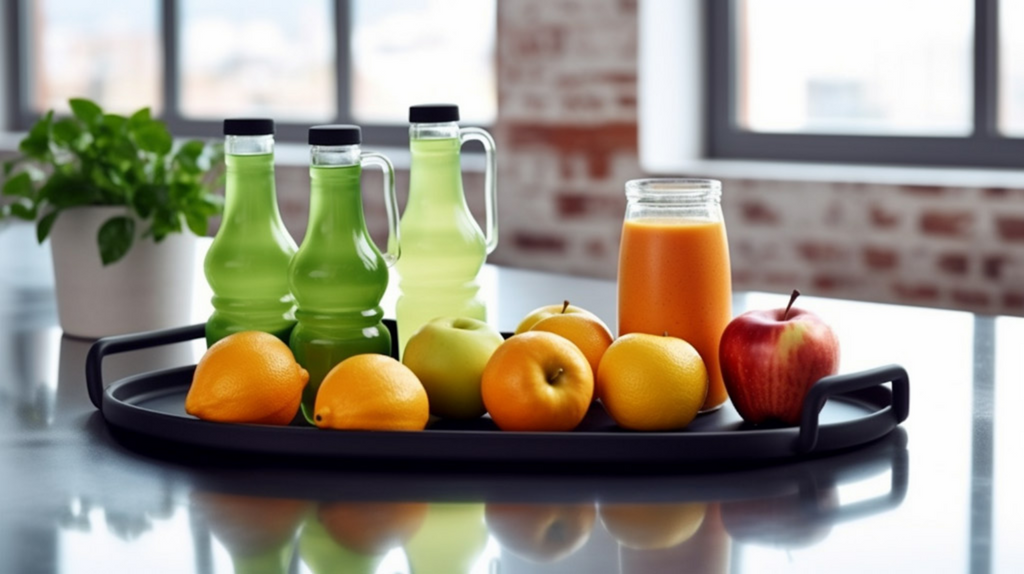Maximize Home Gym Results: Fuel Your Workouts with the Perfect Diet!

- Introduction
- Stay Hydrated: Drink Your Way to a Great Workout
- Get Carbs from Complex Sources
- A Light Pre-Workout Snack: Keep It Under 300 Calories
- Avoid Heavy, Acidic, and High-Fat Foods
- Fuel Up, Then Recover and Refuel Again
- Conclusion
Introduction
To maximize results from your smart home gym workouts, your diet and nutrition strategy should match the intensity of your workouts. When fueling up for exercise, it is important to provide your body with adequate carbohydrates and protein for energy without discomfort during your workout.
Complex carbs, lean proteins, proper hydration, and occasional supplements can help boost your endurance, performance, and muscle gain over time.
However, comprehensive nutrition starts with your whole food choices. Packed with nutrients, natural whole foods should form the foundation of your diet and fuel for exercise. Save supplements for occasional use only or as directed to supplement, not replace, nutritious whole foods.

Stay Hydrated: Drink Your Way to a Great Workout
Proper hydration is essential for athletic performance, endurance, liver and kidney function, joint health, and muscle pumps. Stay hydrated throughout the day and have extra water right before your workout. Aim for half your body weight in ounces of water. This means a 150 lb person would drink 75 ounces or about 9 cups of water a day. Thirst is not an indicator of dehydration for exercise, so stay on a regular hydration schedule, no matter your activity or workout routine.
Get Carbs from Complex Sources
Complex carbs from sweet potatoes, brown rice, oats, and whole grains will fuel your workout without spiking blood sugar. Pair with moderate protein for balanced energy and muscle preservation.
Options include sweet potato with black beans, brown rice, grilled chicken, oatmeal with Greek yogurt, and a quinoa bowl with black beans and veggies.
A Light Pre-Workout Snack: Keep It Under 300 Calories
For workouts within a few hours of eating, a snack with carbs and protein under 300 calories helps avoid stomach upset but still prepares you for a great workout.
Options include Greek yogurt (150 calories) with granola (100 calories), peanut butter on whole wheat toast (250 calories), rice cake with nut butter (190 calories), or veggie sticks with hummus (250 calories).
Keep protein under 20 grams to prevent stomach discomfort during exercise.

Avoid Heavy, Acidic, and High-Fat Foods
Pizzas, fried foods, fast food, full-fat dairy, sugary cereals, and granola bars take longer to digest and can lead to discomfort, energy crashes, and poor performance during exercise. Limit or avoid these foods 2-3 hours before your home gym workout.
Occasional supplements may boost energy and endurance. But focus on whole foods first.
Whey protein, BCAAs, or creatine provide extra support but should not replace nutritious, unprocessed foods. Use supplements only as directed or to supplement your diet, not replace it.

Fuel Up, Then Recover and Refuel Again
In addition to pre-workout nutrition, the post-workout meal and snack help your muscles recover overnight and continue gaining strength and size.\
Remain hydrated post-workout and consume moderate protein with carbs for a full recovery. Your diet can make or break your home gym results. Do it right, and you will achieve new milestones!

Conclusion
Understanding how to properly fuel your smart home gym workouts through nutritious whole foods and occasional targeted supplements enables progress toward fitness goals and a physique you love.
Complex carbs, lean proteins, constant hydration, and minimally processed ingredients form the foundation of the perfect fuel for exercise. They provide sustained energy and amino acids for muscle gain without discomfort, crashes, or side effects.
Homemade meals offer a customizable balance of carbs and protein for your specific workout intensity and needs.


